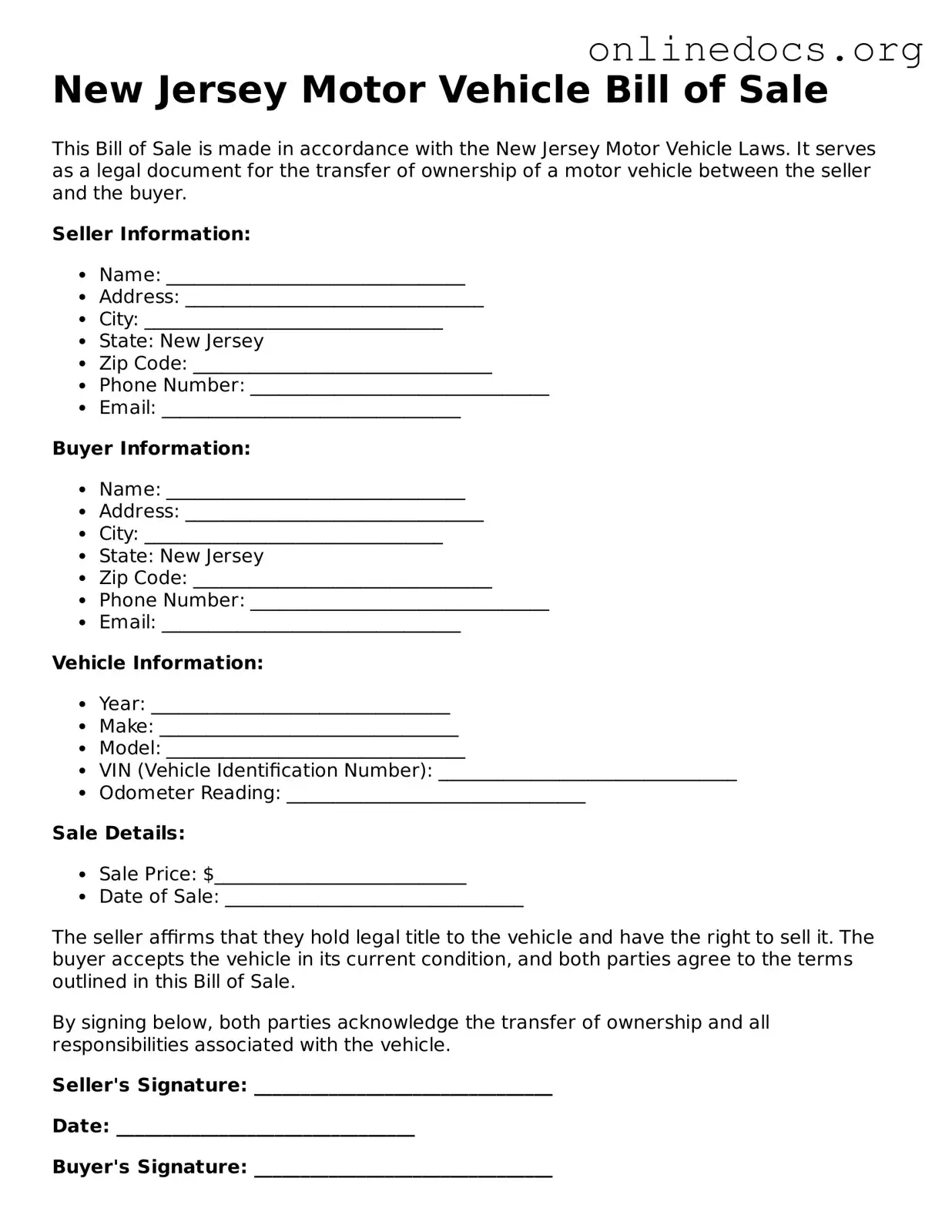The New Jersey Vehicle Title Application is similar to the Motor Vehicle Bill of Sale in that it serves as a key document in the transfer of vehicle ownership. This application is required when a vehicle is being registered for the first time or when ownership changes. It provides essential information about the vehicle and the new owner, ensuring that the state has accurate records of who owns the vehicle and its status.
The Vehicle Registration form also parallels the Motor Vehicle Bill of Sale. This form is necessary for obtaining a license plate and registering a vehicle in New Jersey. It includes details about the vehicle, such as its make, model, and Vehicle Identification Number (VIN). Like the bill of sale, this form confirms the ownership and allows the vehicle to be legally driven on public roads.
The Odometer Disclosure Statement is another document that shares similarities with the Motor Vehicle Bill of Sale. This statement is required when a vehicle is sold to confirm the mileage at the time of sale. It protects both the buyer and seller by ensuring transparency regarding the vehicle's usage history, which is essential for determining its value.
The Title Transfer form is closely related to the Motor Vehicle Bill of Sale, as it is used to officially transfer ownership of a vehicle from one party to another. This document must be completed and submitted to the state to update the title records. It includes information about the buyer, seller, and vehicle, serving as a legal record of the transaction.
The Affidavit of Ownership is another important document that can be compared to the Motor Vehicle Bill of Sale. This affidavit is used when the seller cannot provide a title for the vehicle. It serves as a sworn statement confirming the seller's ownership and the details of the vehicle, offering protection to the buyer in the absence of a title.
The Vehicle History Report, while not a legal document, is often used alongside the Motor Vehicle Bill of Sale. This report provides a comprehensive history of the vehicle, including previous ownership, accident history, and title status. Buyers often request this report to ensure they are making an informed decision before completing the sale.
Understanding the various documents involved in vehicle transactions is crucial for both buyers and sellers. For instance, whether you are using a Bill of Sale or a Purchase Agreement, it's essential to clearly define the terms of the sale to avoid misunderstandings. A useful resource for navigating this process is the https://californiapdfforms.com/vehicle-purchase-agreement-form, which provides a comprehensive guide to the California Vehicle Purchase Agreement form, ensuring that all necessary details are addressed for a smooth transaction.
The Sales Agreement is another document that complements the Motor Vehicle Bill of Sale. This agreement outlines the terms of the sale, including the purchase price and any conditions agreed upon by both parties. It serves as a contract that protects both the buyer and seller during the transaction.
Lastly, the Insurance Verification form is similar in that it is often required during the vehicle registration process. This document proves that the vehicle has the necessary insurance coverage before it can be legally driven. It ensures compliance with state laws and protects both the owner and the public in case of an accident.
